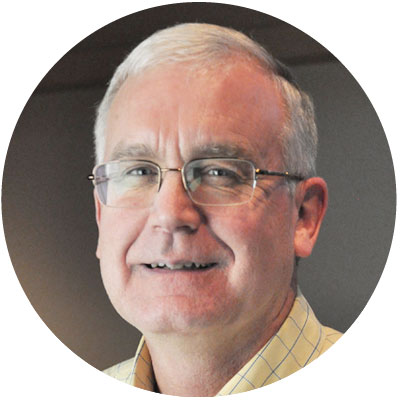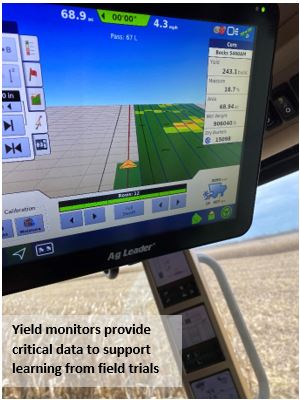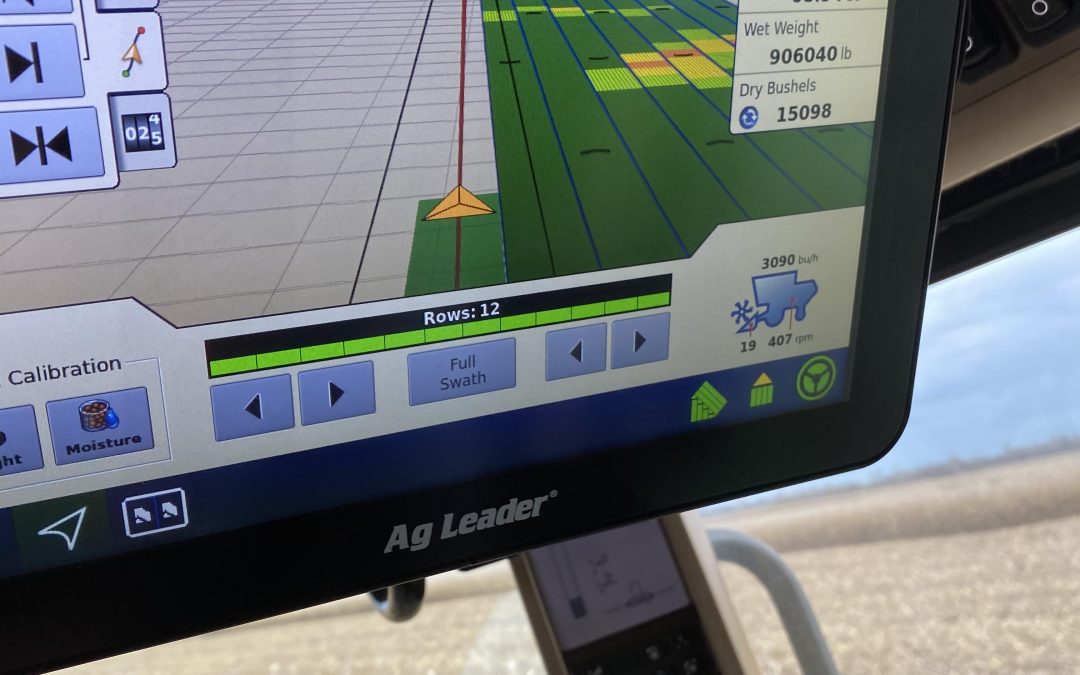
University of Connecticut

Can crop advisors influence farmers’ willingness to implement conservation practices? We think the answer is absolutely yes – but the infrastructure for this type of relationship is not yet well-established.
Early Adopters are the key
Research conducted to understand who farmers trust for agronomic information shows that farmers rank their independent and retail-affiliated crop advisers near the top of the list. A paper by Eanes et al[1] concluded that this trust could translate into an expanded role for crop advisors as conduits for learning about conservation practices. At the same time, the paper raises several questions about how to support such an expanded role. Ideas include involving crop advisors more formally in conservation initiatives, supplementing crop advisor education programs to include conservation infrastructure practices, and providing financial incentives to crop advisors to adopt such a role. Including financial incentives may be important, because the study also showed that farmers are largely unwilling to pay for conservation advice. This fact shows that farmers place more importance on production-related advice than conservation advice for financial gain. Perhaps the biggest question is whether or not crop advisors themselves wish to become conservation advisors.
Brookside Lab’s Amplify Network provides a good example of how incorporating conservation advice can work. The network is a peer-supported crop advisor group that has enthusiastically adopted conservation advice as part of their business practices. Amplify is a network of over 180 agronomic consultants who offer soil, turf, and environmental recommendations and guidance for clients around the world. Crop advisors use Brookside’s lab for their soil tests and other agronomic testing needs, and the lab prides itself on using quality data to maximize returns and improve soil health for their clients. Recently, Brookside also acquired NutrientStar, an independent program that provides unbiased information about the efficacy of nutrient management products.
But have these crop advisors influenced their client farmers towards more conservation? Research suggests that they have. A study in Indiana[2] of farmers who were participating in an on-farm field trial network led by Amplify crop advisors showed that these same farmers had more positive attitudes towards water quality, perceived water pollution as a more severe problem, and utilized more conservation practices than non-participating farmers. The paper also pointed out that these farmers may have been more pre-disposed toward conservation adoption to begin with, and chose crop advisors with a reputation for providing information that would facilitate on-farm conservation. The bottom line is, crop advisors and farmers with similar conservation mindsets can work together effectively to produce better outcomes – both economically and environmentally – for the farmer and for long term conservation of the farm itself through improved soil quality, fewer nutrient losses and more operational efficiencies.
Reaching beyond non-early adopters: NRCS’ role
But what about farmers who are not already predisposed towards conservation? How can networks like Amplify reach beyond its affiliated peer groups and transfer powerful learning and best practices to other crop advisors and farmers, particularly in the competitive world of agronomic advising? And how can retailer-affiliated crop advisors monetize conservation advice to farmer clients if farmers are not willing to pay for it?
The USDA Natural Resources Conservation Service may be a pathway to more agriculture advisors adopting conservation education as part of their portfolio. The agency has recognized a need to facilitate these types of transitions through programs like the Regional Conservation Partnership Program, which includes alternative funding models that recognize the important role advisors play in providing outreach to farmers. More recently in 2019 and 2020 the agency also provided funding through the Conservation Innovation Grant program for on-farm trials that involve agriculture advisors as essential to the project. Brookside Labs and the Amplify Network received one of these grants in late 2019 to conduct on-farm nitrogen stabilizer trials, which are on-going. An objective of the project is to evaluate results and share information with NRCS about how advisors work with farmers on shared conservation objectives. To help with this part of the project, researchers working with Dr. Linda Prokopy of Purdue University will conduct pre- and post-project interviews with crop advisors and farmers to benchmark attitudes, note any changes, and document learning and results.
Benchmarking and tracking attitude changes through the Brookside/NutrientStar CIG
The Purdue team recently conducted preliminary interviews of 17 advisors participating in the Brookside Labs On-Farm Trials Conservation Innovation Grant. The interviews demonstrated that Amplify crop advisors participating in the project support conservation practices and believe conservation is the efficient and effective use of resources and nutrients. Most believe conservation plays a role in their professional activities and highlight the importance of promoting the economic benefits of practice adoption. Most of the advisors currently use or recommend nitrogen stabilizers to their clients and understand the general concept and mechanics of their use, but they also cite a lack of existing data about the conditions where products work best. Our hope is that by documenting crop advisor and farmer attitudes about stabilizer trials, by detailing the steps needed to conduct the trials, and by producing field-scale data about these products’ benefits in production farming operations, we will be able to highlight for NRCS the importance of the farmer/advisor relationship in conservation adoption and the data we collect will help guide the agency’s funding and technical assistance programs.
Expanding the idea further: Advisor and Farmer peer groups as effective learning models
The Amplify Network at Brookside Laboratories provides a framework to encourage learning through advisor peer groups. Consultants regularly share data, information, and techniques with each other. With the complexity of farming continually increasing both on the technical side and the social side, consultants need to constantly upgrade their skills and knowledge. In this way consultants can provide farmers with the most profitable and conservation-oriented practices.
Peer group information sharing also works for farmers, and NRCS already has a program that incentivizes the model. As early as 2013, NRCS published Technical Note No. 7[3] entitled “Adaptive Nutrient Management Process” which enables use of the adaptive nutrient management learning process to improve nutrient use efficiency on farms. Technical Note No. 7 has two parts. The first part describes the protocols to implement on-farm trials. This information has become more widely known by consultants and farmers as they have learned how to put their yield monitors and other precision ag equipment to use collecting data. The second part notes that discussing and sharing the results from on-farm trials amongst the consultants and farmers who implemented the trials is the best way to understand the results. Understanding the results is the payoff for the time and money spent implementing trials. Without a full understanding of whether and how the results might improve the profitability of a farm, the primary reason for running on-farm trials cannot be met.
The idea of consultants and farmers meeting as a group to learn from each other about what the results of numerous on-farm trials mean to them typically is viewed as an ancillary part of an on-farm testing program. This viewpoint is slowly changing as consultants and farmers realize that seeing data from farms nearby their farms and having a chance to learn how the results are viewed by consultants, farmers and scientists contributes greatly to their understanding of their own results. Research on how adults learn new information and integrate the information into their daily lives has shown that these types of meetings are critical to making the best use of results from on-farm trials.[4] Not only can farmers and crop advisors learn from these results, so too can local USDA NRCS and SWCD technical staff who implement the conservation programs so useful to the ag community.
Returning full circle to the original question about the crop advisor’s role in conservation, we hope through our work to show that it is in the best interests of farmers, advisors, USDA NRCS, and local and regional agriculture stakeholders to participate in and support this model: experimental on-farm trials, data collection, and critical learning through peer groups and scientific data interpretation. Farmers and their advisors can take advantage of these new and innovative conservation programs offered by NRCS to increase their technical knowledge at a low risk to their farms and consulting businesses.
[1] Eanes, Frances R. et al, “Midwestern US Farmers Perceive Crop Advisers as Conduits of Information on Agricultural Conservation Practices” (2017) Environmental Management 60:974–988
[2] Pape, Aaron D., “Power of peers: How effective are Indiana farmer networks?” (2015). Open Access Theses. 591.
https://docs.lib.purdue.edu/open_access_theses/591
[3] NRCS, 2013. Adaptive Nutrient Management Process. Agronomy Technical Note No.7. Available at: https://directives.sc.egov.usda.gov/OpenNonWebContent.aspx?content=33791.wba
[4] Bell, S. and J. McAllister. 2012. Sustainable Agriculture through Sustainable Learning: Improving educational outcomes with best practices for adult learning. Available at: https://www.sare.org/wp-content/uploads/SustainableLearning-Guiderev4-15-13.pdf



Recent Comments